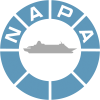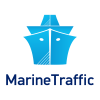

Decision Support Systems Laboratory - National Technical University of Athens
VesselAI aims at realising a holistic, beyond the state-of-the-art AI-empowered framework for decision-support models, data analytics and visualisations to build digital twins and maritime applications for a diverse set of cases with high impact, including simulating and predicting vessel behaviour and manoeuvring (including the human factor), ship energy design optimisation, autonomous shipping and fleet intelligence

Shipping is the lifeblood of global economy, consequently one of the leading sources of greenhouse gases and one of the high-incident domains, due to heavy traffic especially in congested waters, therefore facing escalating pressure for safety, energy efficiency improvement and emissions reduction. Meanwhile, shipping generates extremely large amount of data in every minute, which potential, however, still remains untapped due to the involvement of enormous stakeholders and the sophistication of modern vessel design and operation. To address these challenges, VesselAI aims to develop, validate and demonstrate a unique framework to unlock the potential of extreme-scale data and advanced HPC, AI and Digital Twin technologies, and hence to promote the adoption and application of Big Datadriven innovations and solutions in maritime industry and beyond. By combining Digital Twin technologies and practices, VesselAI can efficiently fuse and assimilate huge amount of data, coming from both observations and simulations, to achieve highly accurate modelling, estimation and optimization of design and operation of ships and fleets under various dynamic conditions in near real time. Their technical enhancements and practical performance improvements are further demonstrated in 4 maritime industry pilots, tackling practical challenges for 1) global vessel traffic monitoring and management, 2) globally optimal ship energy system design, 3) short-sea autonomous shipping
and 4) global fleet intelligence. VesselAI brings in a consortium of renowned actors in maritime and ICT domains, providing a perfect mix of high-level expertise in both domains and readily accessibility to huge amount of data for industry-leading research and innovation in the project. Together, VesselAI addresses the challenges of implementing extreme-scale analytics in industries and showcase how AI, cloud computing and HPC can encourage, and enable deeper digitalization in the maritime and wider industries

An implementation of the DBSCAN algorithm,that extracts mooring places out of AIS messages. Package also includes methods to analyze extracted clusters.



Model for port to port vessel route forecasting using massive Automatic Identification System (AIS) datasets
Automatic Identification System (AIS) dataset from the Mediterranean Sea
AIS dataset collected within a 24h period (starting from 29/02/2020 10PM UTC) from a single receiver located near the port of Piraeus (Greece)
Optimisation of the design and operation of ship energy systems in terms of energy efficiency and lifecycle costs
Tools for extraction of numerical specifications from technical documentation in PDF format

An improved version of the core parts of the code that implements the Vessel Location Forecasting (VLF) and Vessel Route Forecasting (VRF) methods.
Descriptions of the implementation of the Vessel Traffic Flow Forecasting (VTFF) model that forecasts the vessel traffic flow within a given region.
Python implementation of the VCRA/F model from the paper "Collision Risk Assessment and Forecasting on Maritime Data"
NN-SPM estimates ship fuel consumption taking into consideration weather and operational conditions.
Digital twins are computational models that replicate the structure, behaviour and overall characteristics of a physical asset in the digital world. In the maritime domain, conventional approaches have relied on mathematical modeling (e.g., linearised equ...

A model capable of detecting anomalous ship behavior for a given geographical region.
A route prediction model geared towards enhancing safety of autonomous ships by supporting remote control center situation awareness.
A lightweight AI rerouting decision model that helps to determine whether running weather routing is beneficial. The goal of the model is to help minimize the high computational workload demanded by a commercial weather routing system that performs freque...
AIS data collected by the University of Piraeus' AIS receiver
This asset includes code forthe prediction of fuel consumption using AI regression models and time series forecasting techniques. The asset was developed in the context of H2020 VesselAI project
Using a unique dataset, comprising historical maritime data for different vessel voyages, including vessel type, voyage information and environmental factors, we employ decision trees, a number of regression, and artificial neural network algorithms for p...
The purpose of the Data Exploration Service is to allow the users of VesselAI to explore the available datasets, combine them and express complex queries on them. The service offers an environment through which the user can discover the available datasets...

The VesselAI Data Harmonisation Services is a set of services provided through an User Interface for harmonising Maritime Domain-related data sources with Big Data characteristics. This harmonisation process entails the mapping of raw data schemas/formats...